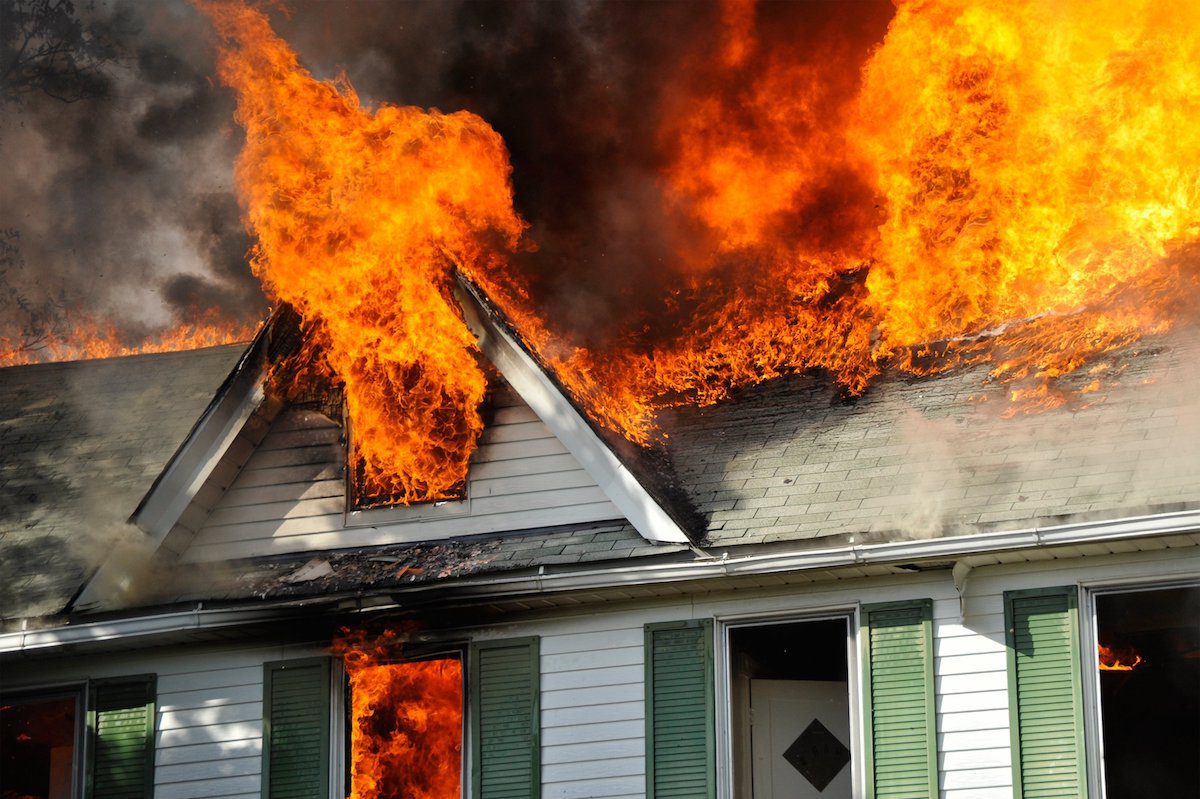Why Landlords Should Require Renters Insurance For Their Tenants
There's no harm in asking all of your tenants to get renters insurance. Aside from it protecting their stuff, what the policy covers can also make your life a lot easier.

No landlord wants to get an angry call from a tenant saying you have to replace their big-screen TV that got stolen while they were out of town. You made sure all the locks in the home were properly installed. You did your due diligence. This isn't your fault. But, without a renters insurance policy, the tenant won't get their item replaced. And, they could try to come after you for it and any other expenses.
Avoid the drama. Talk to your tenants about a standard renters insurance policy. Make sure they understand what renters insurance protects, and why you think it's necessary to require they have a renters policy.
What is renters insurance?
Renters insurance is a type of insurance policy that helps protect personal belongings. In this case, it's all the stuff a tenant puts inside your rental property. Renters insurance covers personal property damages that occur from unexpected circumstances. These can include fire and theft. A policy will also include liability coverage if someone gets hurt while on the property.
Why should landlords require renters insurance?
There are many reasons why landlords should require renters insurance, and they're not all related to a tenant's personal property. Renters insurance protects you, the landlord, as well.
If you're on the fence about whether to require renters insurance, consider this:
1. It protects the landlord's property
If something destroys or damages a tenant's belongings, renters insurance will reimburse the tenant for their losses. This can help prevent you from liability for property damage.
2. It minimizes the landlord's risk
Renters insurance helps to minimize the landlord's risk by transferring some of the responsibility for damages and liability claims to the insurance company.
3. It shows that the landlord cares about their tenants
Requiring renters insurance demonstrates that you're interested in protecting your tenants and their property. Especially if your tenants are often college students, or those moving into their first rental, they might not know about this type of insurance. Cluing them in can help build trust and respect between you and the tenant.
4. It saves money
Even though renters insurance coverage applies to only the tenant's personal belongings, it can also help lower your own costs as the landlord. If damage occurs to both the tenant's property and the actual structure of the home, you'll only have to file a claim for the repairs to the home itself. With the added coverage from a renters insurance policy, you most likely will make fewer claims against your own policy's limits.
Additionally, if a situation arises and the tenant has relocation expenses, their renters insurance could cover that cost, saving you from having to potentially deal with it.
How to convince tenants to get a renters insurance quote
Most tenants agree they should have renters insurance, but if there's any pushback, you may need to convince them a little. Focus on what's covered, and how they're solely responsible for their own property no matter what happens to it.
You can even remind them how much they paid for the fancy electronics and big pieces of furniture they're bringing into the home, and how they wouldn't want to have to pay out-of-pocket to buy everything over again should unexpected events take place.

It protects their personal property
Just about any argument you make in favor of renters insurance to a prospective tenant is that it protects their personal property. The insurance company issues the replacement cost should something happen. Everyone understands money, and nobody wants to buy something twice. This is a strong argument.
What's also important to show is what renters insurance protects your property from. This includes solid coverage against damage from:
- Theft or vandalism
- Fire
- Extreme weather like lightning and hail
- Frozen plumbing
- Vehicle impact
Also, don't forget to mention the liability coverage should someone get hurt while in the home. As the tenant, this accident is their responsibility to cover. And, they won't want to get caught paying someone else's medical expenses.

What is not covered by renters insurance?
While renters insurance can provide a lot of protection, there are some things that it does not cover. For example, renters insurance typically does not cover damages caused by intentional acts or negligence. Additionally, it generally does not cover the tenant's belongings if they're stolen or damaged outside the home. This includes the car or even a storage unit.
These issues aren't your responsibility to cover, either. Your tenant should have car insurance to handle property within their vehicle. And, the security deposit addresses issues related to intentional damage or negligence on their part. If a tenant stores their belongings elsewhere, that facility should also have some kind of coverage.
Other items not covered in a basic renters insurance policy include high-end valuables like certain pieces of jewelry and expensive collectibles. Tenants might need a more robust policy with higher coverage limits if they own items like these.
Also, if the tenant can run a small business out of the home, property directly related to the business is not covered completely. Tenants may need a separate business policy.
Do landlords have to require renters insurance?
There's no law that says landlords must require renters insurance. However, it's generally a good idea for landlords to incorporate a clause in their lease that requires tenants to carry renters insurance. This could help convince even a hesitant tenant to get a policy so they can rent your home.
According to the Rental Housing Journal, only 41 percent of renters carry renters insurance, so it's not an automatic add to additional living expenses. Why so few carry a policy is hard to say, especially when looking at homeowners insurance rates. Ninety-five percent of homeowners carry a policy.
Requiring a policy puts this need on a tenant's radar in time for them to review renters insurance policies and find the best coverage option.
How much renters insurance should landlords ask for?
Asking a tenant to purchase a standard renters insurance policy isn't an expensive or inappropriate ask. The average price of a standard policy is only about $10 a month. This provides around $20,000 in personal property coverage.
If what a tenant owns totals up to more than this, they can extend coverage for a just few dollars more per month. Asking tenants to pay $120 for a year's worth of renters insurance that could save them tens of thousands of dollars seems pretty reasonable.

Do landlords need insurance, too?
Yes, landlords need insurance, too! Landlords insurance is an insurance policy that helps protect landlords from liability claims and damages to their property.
A policy like this usually has sections related to:
- Premise liability
- Medical expenses
- Rental property (the actual structure)
- Loss of use coverage
Where a landlord insurance policy may come into play is in the area of certain natural disasters and unintentional situations that make the home uninhabitable. For example, if unexpected events occur to the physical structure of the rental, like the empty basement floods and the tenant has to move out for a few days while you deal with it, your insurance policy may designate your tenant's hotel stay as a covered event. Your policy may also compensate you for the rent you can't collect while your tenant can't stay in the home.
What about an umbrella policy?
To expand on the coverage you get from landlord's insurance, you might also want to look into umbrella insurance. This type of policy covers your savings and your assets. It protects you from any legal claim that exceeds the liability limits of your other types of insurance.
For example, if your tenant suffers injuries or property damage not covered by their renters insurance, and the fault goes to you, any overage to pay out the claim from your landlord's insurance gets covered by an umbrella policy.
It's a great safety net that extends beyond the landlord-tenant relationship. It can also cover legal defense costs, certain types of lawsuits against you, damage to others' property and others' injuries in a situation where you're at fault.
Protect your tenant with renters insurance
As a landlord, the last thing you want to happen is for your tenant to suffer financially. It not only puts them in a rough spot, but it can impact their ability to pay rent. Certain scenarios are out of your control, like lost wages or large medical bills, but you can protect your tenant from the cost of property loss.
Requiring renters insurance is as much for your tenant's benefit as for your own, so include it in your lease agreement.
